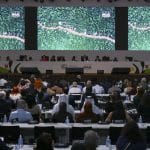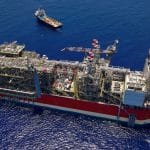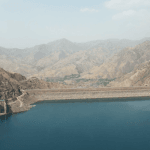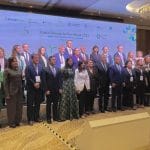The new Climate Adaptation Strategy adopted on February 24 will have to help make the European Union not only climate-neutral but also climate-resilient by 2050, European Commission Executive Vice-President for the European Green Deal Frans Timmermans said.
“If we make our adaptation smarter, swifter, and more systemic, we will be able to – and especially also add the international component – we will be able to learn from our partners, to learn from each other, and to make sure we adapt more quickly,” he said.
“First, to make adaptation smarter, we need more data collection and data sharing. With more precise modelling on future hazards, farmers can better plan the crops they plant, families buying a home will know what climate risks they may face, businesses will know how to make new production facilities fit for a hotter planet, and cities will know how to protect their residents from weather extremes,” Timmermans said.
The Vice President said that the EU will also start monitoring the health effects of the climate crisis with a new Climate Health Observatory. “It will look at the direct impact of hot and cold extremes and what it means for the spread of new diseases,” he said.
“Next, to make adaptation more systemic, we will target more support at the local level. Tailored advice for especially the most vulnerable communities, so that they can find the expertise to plan, and the resources to take action. We will promote nature-based solutions as much as possible. Think of protecting and restoring wetlands, or developing urban green spaces or restoring peatlands. They help adaptation, and at the same time protect the biodiversity, give us cleaner air and give us cooler cities,” Timmermans said.
He also called for considering the impact of climate change on fiscal policies. Already, extreme weather alone causes an average €12 billion a year in losses. “If we fail to prevent a 3-degree rise in temperature, this could go up to €170 billion a year. Slower developing threats like sea level rise pose a big risk to the 40% of European GDP that is generated in coastal areas and I think the 40% of Europeans living in coastal areas,” he said.
Under the Climate Adaptation strategy, the Commission will start a dialogue with Member States on the impact of disasters on public finance, he said, adding that this will be the starting point of designing more climate-proof fiscal frameworks.
Thirdly, to speed up adaptation, we need to bridge the gap between planning and implementation. We will work with the European Investment Bank to boost adaptation financing. We will also intensify our collaboration with the insurance sector,” Timmermans said, noting that the climate protection gap across Europe is still high, and too often the financial burden of natural disasters falls on uninsured families and businesses or public finances. “Yesterday, in the country I know best, an agreement was reached between the insurance sector and the Royal Institute for Public Health and Environment. The Royal Institute would support the insurance sector with up-to-date information and the best possible scientific knowledge so that insurers know better how to plan and can provide better products at a fairer price to their clients,” he said.
“Finally, we need to do more at the international level. Climate impacts outside our borders will increasingly affect Europe as well. There is a lot for us to learn, especially from countries like Bangladesh and small island developing states. Think about what is happening in the Pacific: adaptation has been an existential task for them for some time already, existential in the most literal meaning of the word,” Timmermans said.
Commitments on climate finance will play an important role for a successful COP in Glasgow in November. “The EU has consistently lived up to our responsibilities, and we will intensify our work to bring other partners along too. This is one of the first things I say when I speak to my colleagues from other parts of the world, whether it’s Alok Sharma who chairs the COP, or John Kerry, or our Chinese counterparts. We need to put the money on the table for the emerging part of our planet to be able to take part in facing the climate crisis,” the Vice President said, adding, “If we step up work on adaptation today, we can make the EU, and the planet, much better prepared for the unavoidable changes we will face tomorrow. And we need to do it immediately”.
The Paris Agreement established a global goal on adaptation and highlighted adaptation as a key contributor to sustainable development. The EU will promote sub-national, national and regional approaches to adaptation, with a specific focus on adaptation in Africa and Small Island Developing States.






